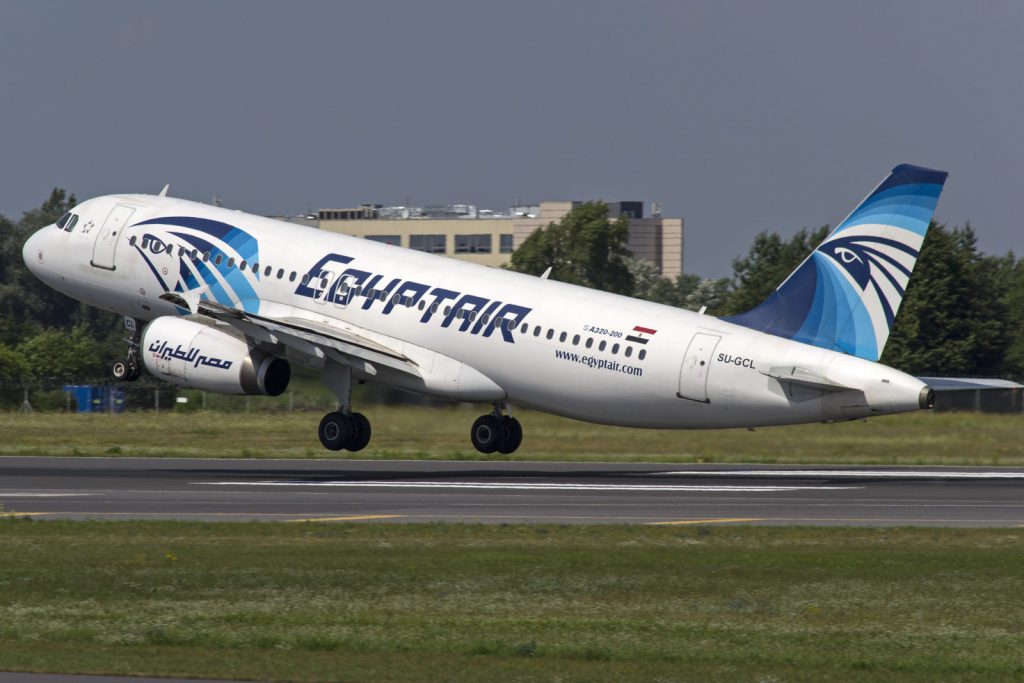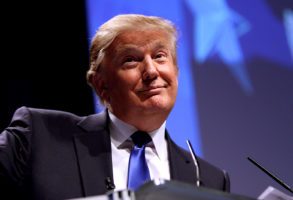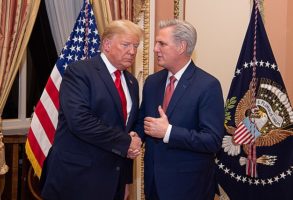
Published May 19, 2016
Egypt Air Flight 804, carrying 66 people including three children, departed from Paris on Wednesday night. Just before it was scheduled to land in Cairo, it appears to have made a 360-degree turn before plunging 9,000 feet and disappearing from radar.
Was it terrorism? Donald Trump leaped onto Twitter at 6:27 a.m. to suggest as much: “Looks like yet another terrorist attack. Airplane departed from Paris. When will we get tough, smart and vigilant? Great hate and sickness!”
While it looks like terrorism, someone who seeks the presidency ought to restrain his speculation until some facts are ascertained, but Trump is not known for circumspection. His emotional incontinence doesn’t, to put it mildly, inspire confidence about how he would handle a 3 a.m. phone call. Yet his outbursts after terror attacks have arguably clinched his nomination.
The fate of Egypt Air Flight 804 illustrates a disturbing confluence of interests. Between now and November, the Islamists and Donald Trump are in a kind of alliance. Any terror attack anywhere in the world helps both.
A Paris or San Bernardino–style attack plays into Trump’s hands by stirring fear and inviting the illusion that a single ruthless individual can keep us safe. His “suggestion” that the U.S. impose a temporary ban on Muslims entering the country (all Trump policy pronouncements have expiration dates – sometimes only hours long) was among the most popular of the primary season. His ignorant bluster about how the U.S. should frame its policies in the Middle East, which have included but are not limited to — a) invading Iraq, b) not invading Iraq, c) stealing the oil, d) killing the families of suspected terrorists, e) letting Russia handle ISIS, f) destroying ISIS with U.S. ground troops, g) accepting Syrian refugees, as a humanitarian matter, h) rejecting Syrian refugees – have somehow amounted to the perception that he can handle the worldwide menace of Islamist violence. Or, to quote the man himself after a March terror attack in Pakistan: “I alone can solve.”
Terror attacks between now and November will also benefit ISIS, al-Qaeda, and their proliferating kindred because a Trump presidency is very much in their interest. His broad-brush anti-Muslim swagger is just the thing to drive already alienated Muslims worldwide into the arms of extremists. His inability to make distinctions among Muslims will feed the narrative of a war of civilizations that ISIS and other Islamists are selling. The terrorists would be delighted if young men in the Paris suburbs and Dearborn, Mich., became convinced that the U.S. is at war with Islam. In fact, the civilized world badly needs allies among Muslim countries and individuals.
We need them particularly in the wake of the choice by the Obama administration to essentially contract out our leadership role in the region to the world’s largest state sponsor of terrorism — Iran. As Obama’s deputy-national security adviser Ben Rhodes essentially admitted to the New York Times, the Iran deal (like Obamacare, but with much more dire consequences) was marketed on falsehoods. The Obama administration did not await the election of “moderate” Hassan Rouhani to initiate talks – and in any case, the character of the putative president is irrelevant in Iran, which is controlled by the supreme leader.
Some Sunnis, notably the leadership of the United Arab Emirates, Egypt’s Abdel Fattah el-Sisi, Jordan’s King Abdullah, and others stand ready to battle Sunni extremists. But the American tilt toward Iran, which has played out not just in the Iran nuclear deal but also in the total withdrawal of U.S. forces from Iraq, has driven many Sunnis into the arms of ISIS. They fear that ISIS is their only bulwark against Iran.
The incoherent Donald Trump has thundered against the Iran deal on some days and declared that the U.S. must “stick with agreements” on other days. The gravamen of his complaint about the deal is not that it made the U.S. a de facto ally of the Shiites, terrified the Sunnis, or put one of the world’s most dangerous regimes within easy reach of nuclear weapons, but that it was a “bad deal” because the U.S. failed to obtain the release of hostages. Hostages matter because of what they reveal about the nature of the regime across the table. The problem with the Munich agreement was not its terms (it was soon flouted), but the fact that Chamberlain was negotiating with Hitler at all.
We are hostages to fortune ourselves.
— Mona Charen is a senior fellow at the Ethics and Public Policy Center. Copyright © 2016 Creators.com








